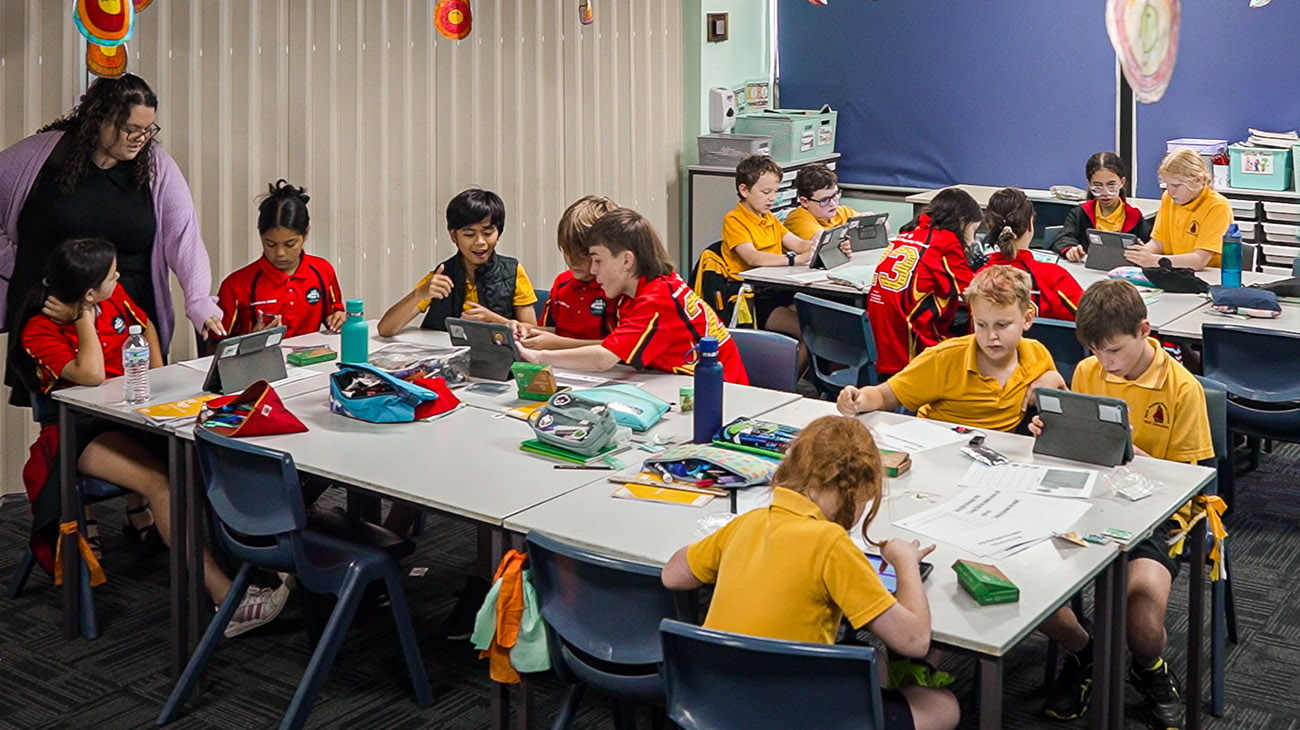Posted Friday, 28 March 2025
Pilot study measures the social impact of Scitech
Scitech teamed up with the University of Western Australia to understand the relationship between Scitech and how people …
Scitech is open this Easter long weekend - 9am to 4pm!
Scitech is open this Easter long weekend - 9am to 4pm!
Scitech is open this Easter long weekend - 9am to 4pm!
Scitech is open this Easter long weekend - 9am to 4pm!
Scitech’s Professional Learning Consultant, Lucas Black, talks about how teachers can integrate AI into their classrooms.

OPINION | Lucas Black, Scitech Professional Learning Consultant
In 1986, when digital calculators were first introduced to classrooms, maths teachers went on strike in protest, fearing the technology would prevent students from ever learning fundamental maths concepts.
In the years since, digital technologies such as personal computers, the internet and virtual reality have continued to change education, leading to new ways of learning.
Today, teachers are navigating Artificial Intelligence (AI) technology, and while there is some initial uncertainty, we are also seeing some exciting benefits from integrating AI into classrooms.
If harnessed correctly, AI can be a powerful tool for inclusive and personalised education.
For example, speech recognition software can aid students with dyslexia, while translation tools can break down language barriers.
Unlike traditional classrooms, where one-size-fits-all methods leave students behind, AI platforms can tailor lessons to individuals’ strengths, weaknesses, and pace.
It means students of all abilities can access the same quality of education, promoting equity in the classroom and beyond.
Despite these benefits, a survey of independent Australian schools found on average just 24% of primary school teachers were using generative AI, citing a lack of time to test and learn new technologies and tools as the top barriers.
A reluctance to use digital technologies is something we often see first-hand at Scitech, through our Alcoa Foundation Digital Technologies Enrichment Program, which supports primary school teachers to integrate digital technologies into their teaching.
Whether it’s using AI or coding robots, teachers feel like they need to be experts in the subject before they can teach it.
This is often impossible as time-poor teachers don’t have the capacity to explore rapidly changing and evolving digital technologies in the same way that students do.
At Scitech, we encourage teachers to see digital technology as an opportunity to co-learn with students by posing good questions that demand critical thinking and problem solving, while using digital resources.
In this way, teachers can facilitate the lesson using the teaching skills they already have.
It’s not about having all of the answers, but how you can scaffold students’ thinking and curiosity to help them find the answers for themselves.
More formal training in AI certainly has an important role to play, and the Australian Council for Educational Research recommends teacher training and guidance on how to curate and harness AI in the classroom, while also teaching students skills for safeguarding against potential risks.
My message to teachers is to give it a go and try something new.
Be open with your students and let them know that you are learning too.
After all, if we want our students to become lifelong learners, shouldn’t we show that we are lifelong learners ourselves?

Lucas Black is a Professional Learning Consultant at Scitech.
Upon clicking the "Book Now" or "Buy Gift Card" buttons a new window will open prompting contact information and payment details.